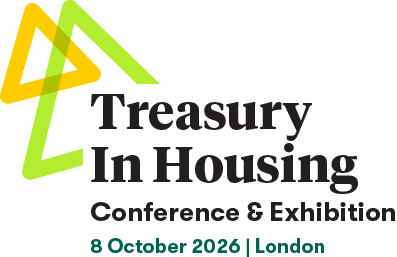4 September 2025
In June 2025, the UK government announced a £39bn investment in social housing in its bid to build 1.5 million new homes during this parliament. This is a key policy objective for the government, and it will shine a light on this sector as never before.
The plans will require a massive increase in building activity and treasurers and finance teams will need to be ready for the challenges of accessing these funds and working with to deploy them most effectively. To add to the challenges there is persistent inflation – especially in the construction sector, and lenders adjusting to new guidelines in areas such as sustainability and Basel 3.1.
These factors mean that doing things the way they’ve always been done no longer guarantees success. success is not just about growing the balance sheet, but by doing so in a way that still delivers on Value for Money metrics, makes the most of existing assets and maintains operating controls to mitigate ongoing risks of fraud and the increasing risks of cyber-attack.
To navigate these challenges, it will be critical to have the right skills and culture available in the right places and at the right times. Against a backdrop of a general skills shortage, how do CFOs and treasurers make sure they have the appropriate team in place?
Professional qualifications play a vital role in opening doors to treasury careers within the social housing sector. For those entering the field, whether from a finance background or transitioning from another area, structured learning provides a clear pathway to build the specialist knowledge and practical skills needed to thrive.
Courses covering topics such as cash flow forecasting, debt management, and sustainable finance help practitioners understand the unique financial dynamics of housing associations, including the balance between short-term liquidity and long-term funding strategies. This foundational knowledge is especially valuable in a sector where financial decisions have long-term social impact.
Beyond technical expertise, qualifications also boost confidence. They empower individuals to contribute meaningfully to strategic discussions, challenge existing practices, and introduce innovative approaches to treasury management. For organisations, this means gaining team members who are not only technically capable but also proactive and forward-thinking.
For more experienced professionals, ongoing access to industry resources, peer networks, and events ensures they stay current in a fast-evolving financial landscape. This continuous learning culture supports both individual growth and organisational resilience.
We know that black swan events are increasingly frequent and the demands on treasury teams in the social housing sector will only increase. To ensure that organisations can deliver, making sure that treasury teams have the right skills and a culture of continuous learning will be a critical component.
----------------------------------------------------------------------------------------------------------
The Association of Corporate Treasurers (ACT) has a suite of qualifications from introductory through to a post graduate diploma covering cash management, treasury and sustainable finance. Access to the ACT qualifications is delivered with the student in mind through flexibility and accessibility.
You can find out more about their qualifications on the ACT website.
We’re excited to announce that this year’s Treasury in Housing Conference is proudly supported by the Association of Corporate Treasurers (ACT). Meet their team onsite at the NHF stand to explore how ACT can support your treasury journey.
Group booking offer:
Register two delegates and get the third at half price, perfect for teams looking to maximise learning and networking.
Date: Thursday 9 October 2025
Location: Royal College of Physicians, London
The Association of Corporate Treasurers


